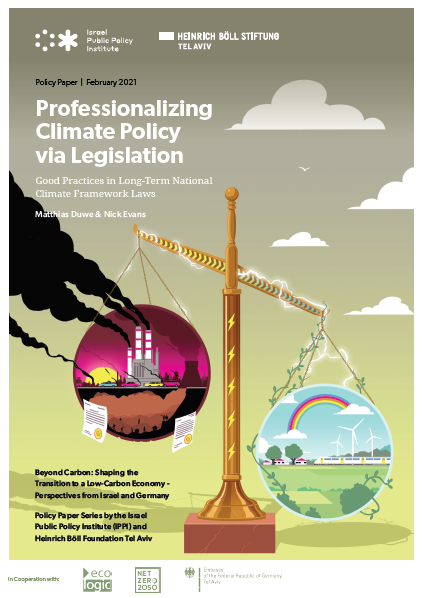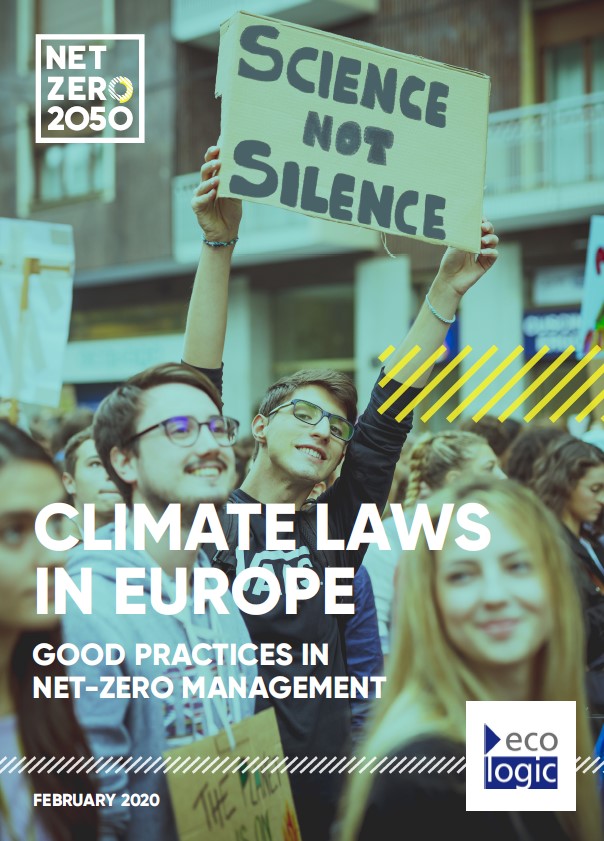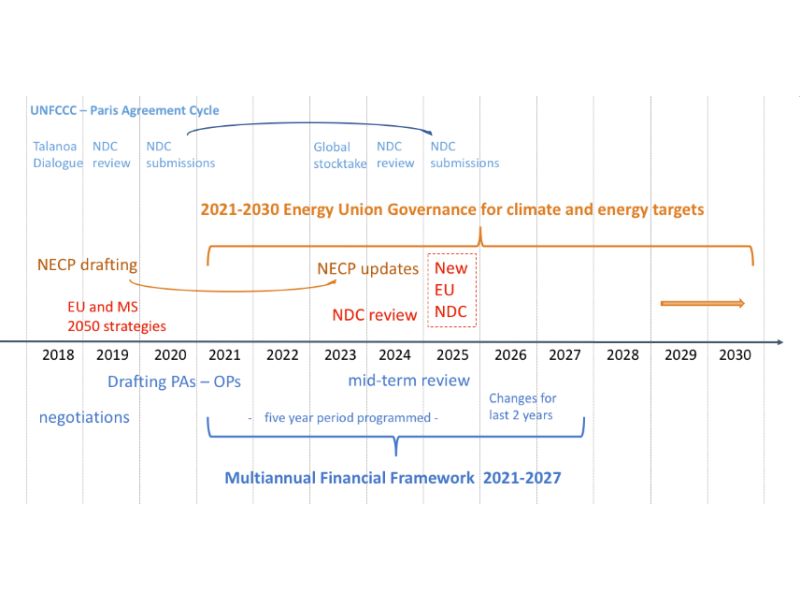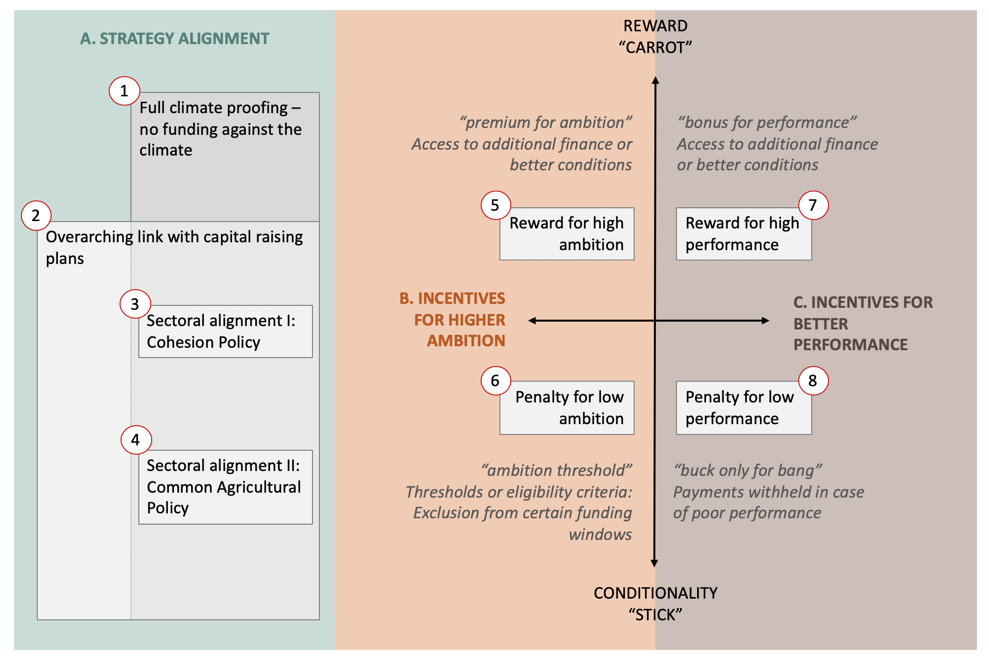Professionalizing Climate Policy via Legislation
Good Practices in Long-Term National Climate Framework Laws
- Publication
- Citation
Duwe, M. & Evans, N. (2021). Professionalizing Climate Policy via Legislation: Good Practices in Long-Term National Climate Framework Laws. Policy Paper Series "Shaping the Transition to a Low-Carbon Economy: Perspectives from Israel and Germany". Israel Public Policy Institute and Heinrich Böll Foundation Tel Aviv.
Governments around the world are seeking to improve the way they organize their climate policy-making. Many countries are adopting national framework laws to do so. Choosing the right design is key for making these laws effective. This paper provides an update on the core elements of ten European climate laws and identifies several best practice lessons that could inform future climate law design.
No two laws are the same, but they show common elements
How best to organize climate policy in a given country depends always to some extent on national context - and as such, no two existing framework laws are the same. However, comparative analysis of existing national climate framework laws in Europe has revealed that many employ a core set of common governance tools to achieve specific long-term mitigation (and in some cases also adaptation) aims. This climate law "toolbox" is composed of concrete targets; processes for policy-making, planning and progress monitoring; assigning responsibilities; scientific oversight and advice; and public engagement. Most of the laws analyzed incorporate unique and innovative approaches for one or more elements.
This policy brief prepared by Ecologic Institute for the Israel Public Policy Institute (IPPI) outlines over 20 good practice examples from ten European climate framework laws (or respective draft versions): Denmark, Finland, France, Germany, Hungary, Ireland, the Netherlands, Spain and Sweden and the United Kingdom. The paper draws heavily on past research by Ecologic Institute commissioned by the European Climate Foundation, and serves as an update to the February 2020 report entitled "Climate Laws in Europe: Good Practices in Net-Zero Management." The brief expands past research also by broadening the geographical scope to provide an introductory overview of the use of laws worldwide (specifically in OECD member countries) for context.
The insights from the paper were also discussed with a set of Israeli and German stakeholders as input to the discussion on a national framework law in Israel – a recording of the workshop and the presentation is available online.
Good practice can provide inspiration for other countries in climate law design
Among the many good practice examples identified in the paper are:
- Rolling carbon budgets for continuous target setting (UK, France, Ireland)
- Germany's use of sector-based annual emission budgets to ensure broad action;
- a trigger that requires additional measures in the case of insufficient action (Denmark, Finland, Germany, Netherlands)
- aligning climate action with government spending (Denmark, France, Spain, Sweden);
- active role for national Parliament in climate policy formulation (Finland, Germany, Ireland, UK)
Pinpointing good practices in existing laws is immensely valuable for countries currently in the middle of designing their own law, like Israel. The overarching message is that with the right design, a framework law can strengthen an existing climate governance system by assigning clear responsibilities, signaling sincerity on long-term objectives and establishing new institutions for transparency and independent (and public) oversight. If there is also sufficient political support to keep the law resilient in the face of political or economic change, a framework law can professionalise and improve national climate policy considerably.







